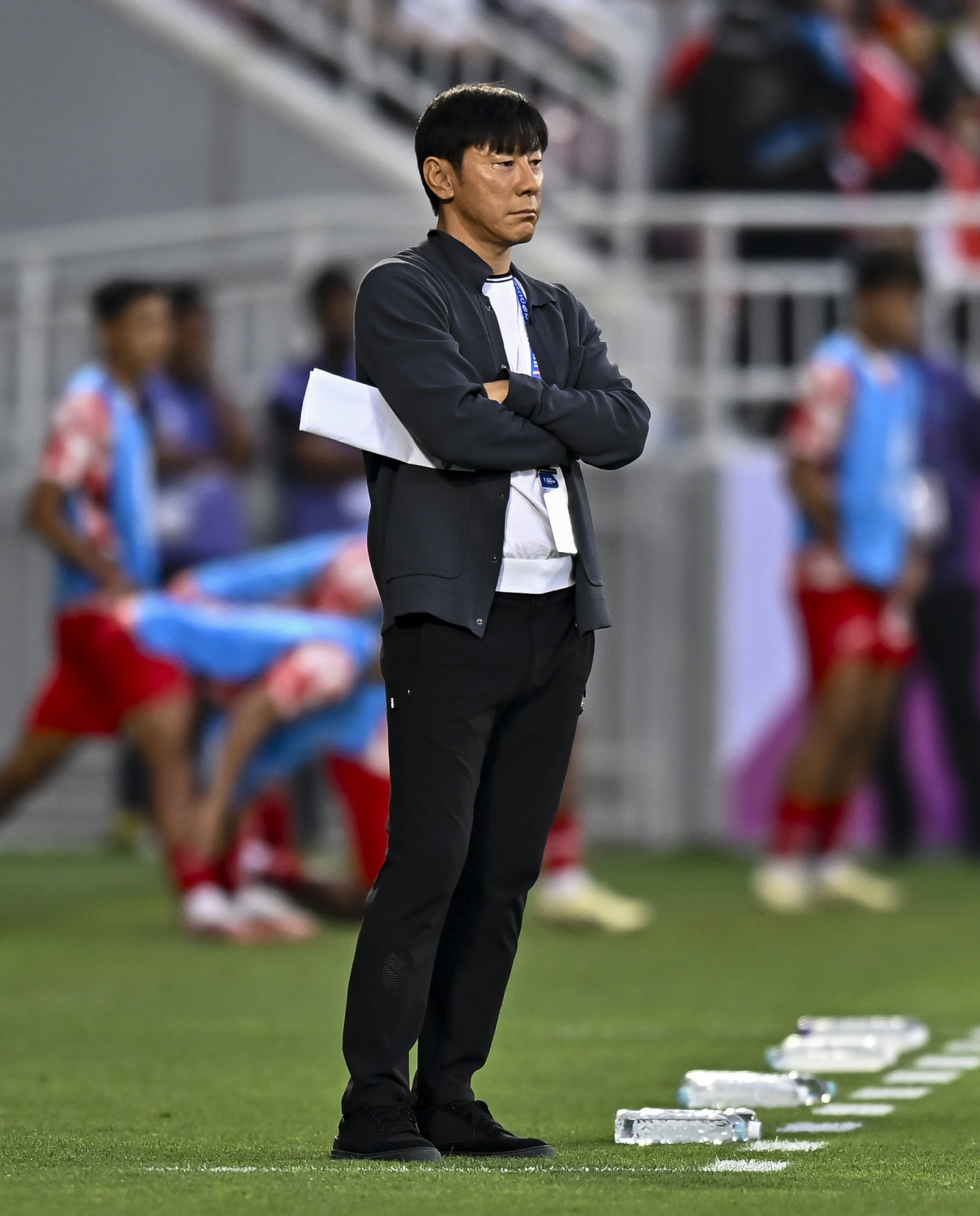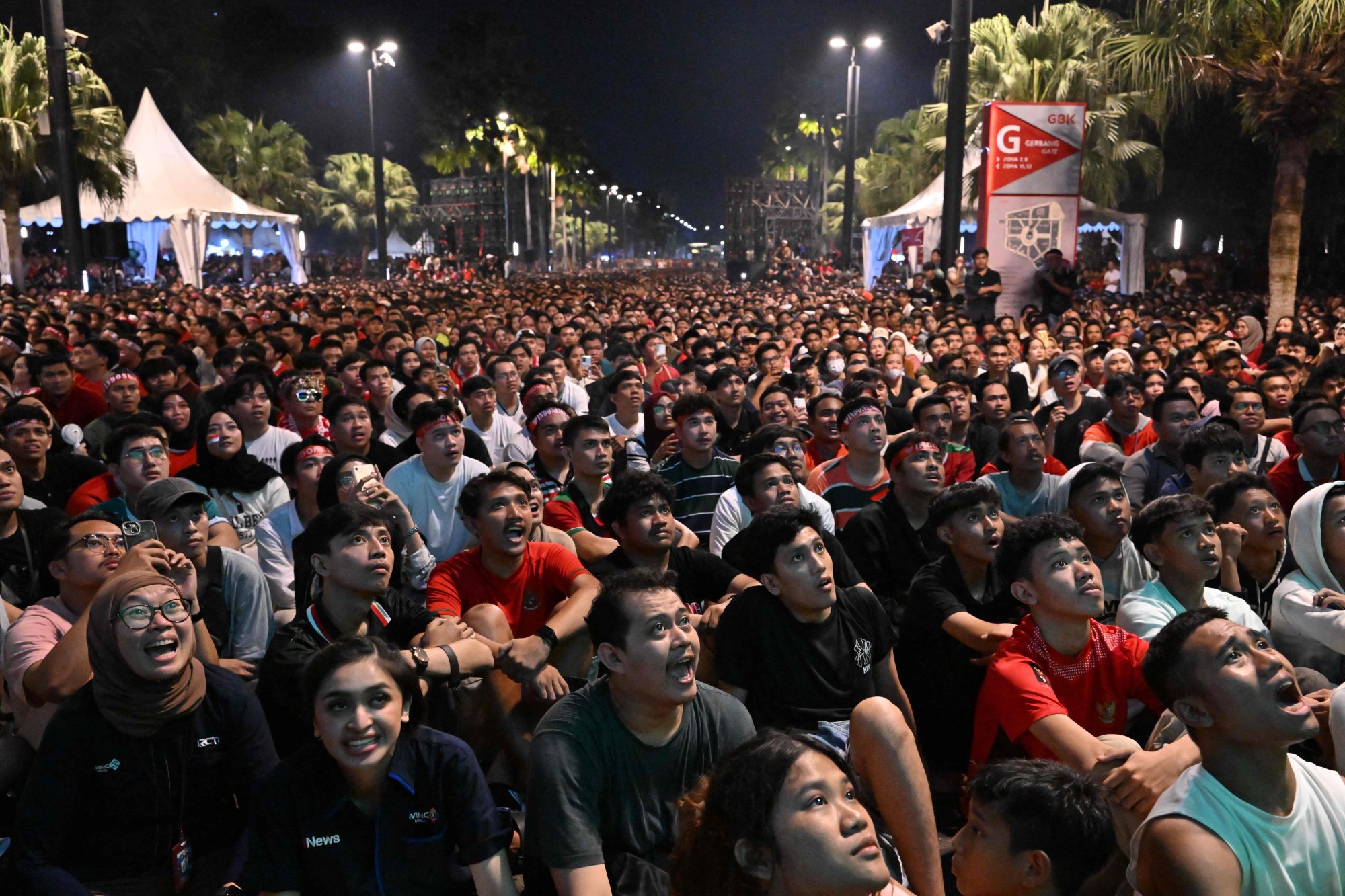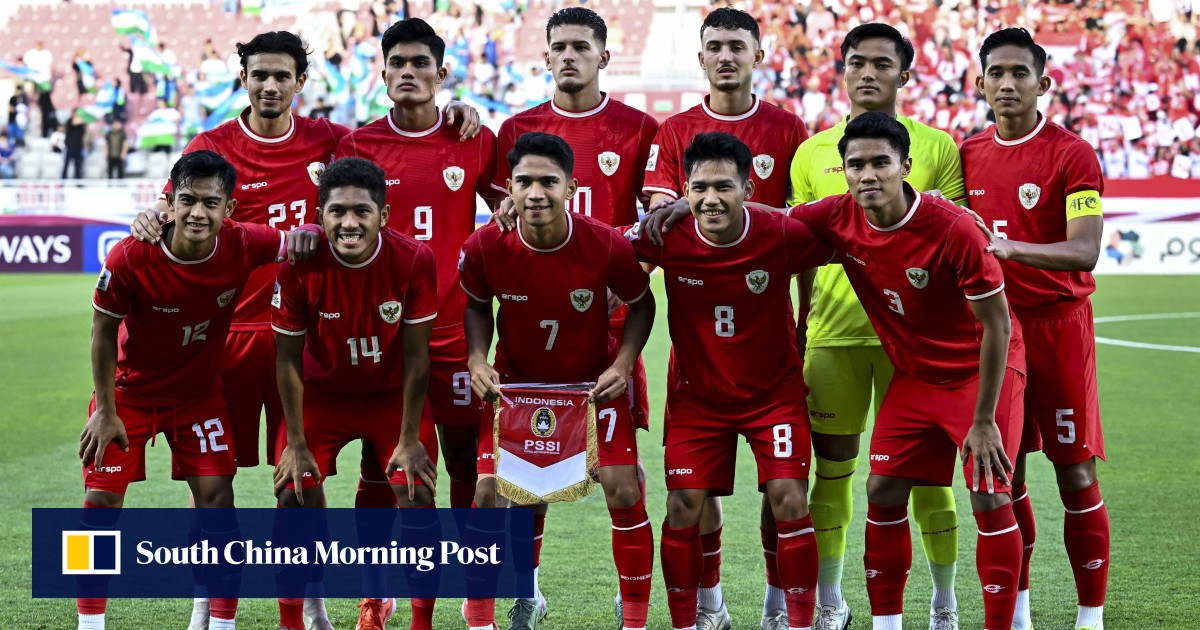On Monday night, as the Young Garuda squared off against Uzbekistan in the semi-finals, football fans across Indonesia erected big screens to watch the game together, in a tradition known locally as nobar.
Crowds also swarmed Jakarta’s main stadium, Gelora Bung Karno, where fans donned the red and white national jerseys, waved the country’s flags, and set up flares during the match.

But the fans’ excitement was dashed after Uzbekistan beat Indonesia 2-0 in a game marred by drama, including an offside goal by Indonesia, a red card for Indonesian defender Rizky Ridho, and an own goal that sealed the Central Asian nation’s victory.
“Uzbekistan was the stronger [team]. Congratulations to the Uzbekistan team. We still have a chance to play in the Olympics, so we have to have good preparation to qualify for the Olympics,” coach Shin said in a post-match briefing on Monday.
“I think before starting the game, we were a little nervous. Maybe this affects the team so we can’t play as well as usual.”

Despite the loss, fans expressed support for the team on Tuesday.
“Throughout the tournament, Uzbekistan has never lost and has never conceded. Throughout the tournament, Indonesia only lost due to red cards, referee decisions and unfriendly VAR. Chin up, young folks! Get up again for [winning the] third place. WE WILL REMAIN PROUD,” user @jerryarvino wrote on X.
Praise also came from the president, with Widodo urging the Young Garuda not to give up. “There is still hope for third place and the opportunity to enter the Olympics,” he said on X. “Don’t give up, Young Garuda. Keep up the spirit!”
Rebound from tragedy
A clash between football fans and police at the stadium that month left 135 people dead, and nearly 600 injured, making it the second-deadliest disaster in football history.
“The Kanjuruhan tragedy was the peak of the public’s scepticism towards Indonesian football. That’s the lowest point,” Kusnaeni said.

A poll by the Indonesian Survey Institute in August found that 88 per cent of 1,520 respondents were “satisfied” with Thohir’s performance as the football association’s chairman.
Kusnaeni credited the team’s current success to coach Shin’s ability to increase Indonesian footballers’ “discipline, focus, and stamina”. Indonesia’s decision to naturalise foreign-born players of Indonesian descent to strengthen the national team at all age levels also looks to be paying dividends.

Dutch goalkeeper Maarten Paes, 25, whose grandmother was born in the city of Kediri in East Java, took an oath on Tuesday to become an Indonesian citizen, making him the 14th player to become naturalised since Shin was appointed coach in 2019.
“Naturalised players have better experience than players who come from domestic competitions. If we want to play at a high level, we have to have players who are used to playing at the same level,” Kusnaeni said.
“They play in the Dutch league, the Belgian league, and other leagues above the Asian leagues. This helps the experience and quality of the Indonesian national team.”


